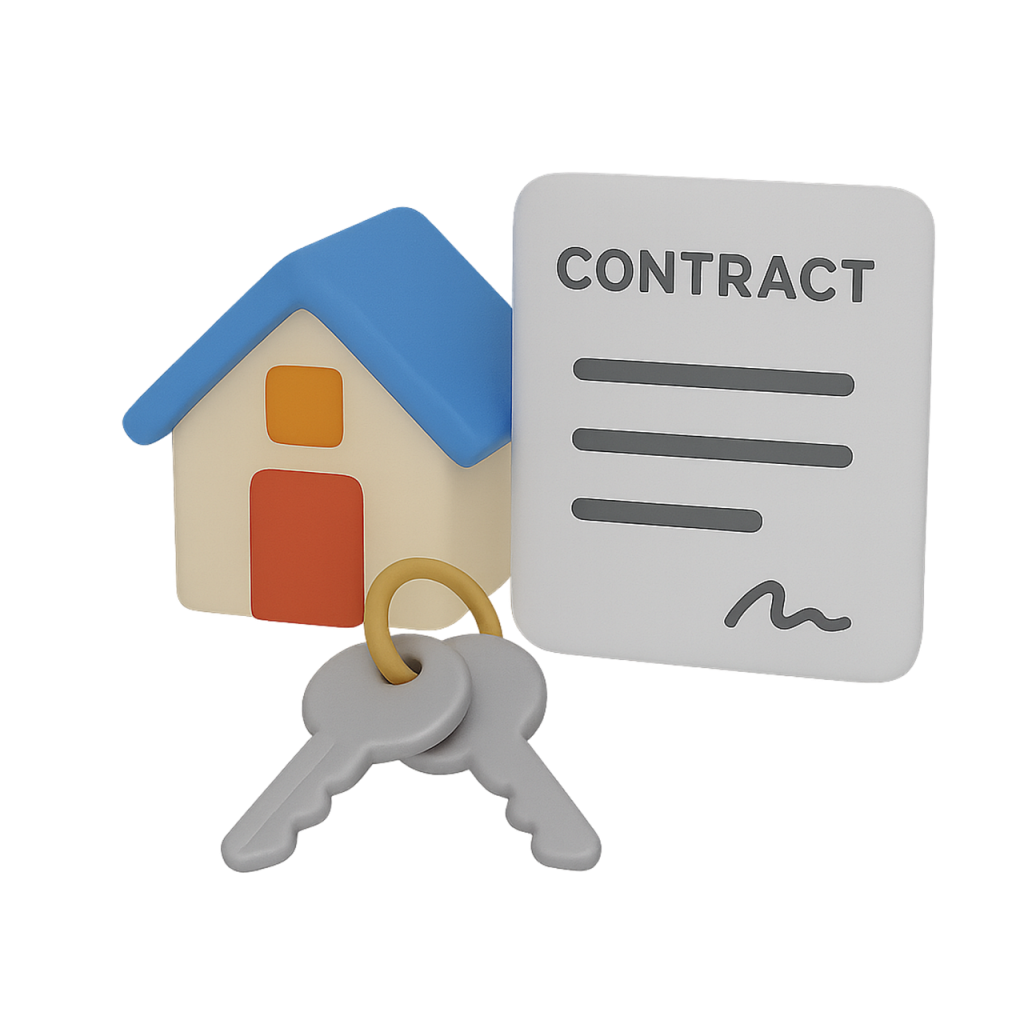A lot of people in Florida are stuck in a lease that they can’t finish. You might have a new job, live in unsafe conditions, or need to move for personal reasons. It can be stressful and hard to understand to break a lease early.
You might be wondering what happens if you break a lease in Florida. Or think about this: can I break my lease without paying a lot of money?
In Florida, tenants have some rights to end their leases early in certain situations, such as when they get military orders or when their housing is in bad shape. But the laws are different here than in other states.
This blog will show you how to end a lease early in Florida step by step. It talks about the legal reasons you can break your rental agreement, how to give notice, what you have to do as a renter, and what could happen if things go wrong.
Before doing anything, every tenant should know what breaking the lease really means. Read on to protect yourself and your wallet.
Important Points
Tenants in Florida can end a lease early for a number of reasons, such as being on active military duty (under SCRA), living in unsafe conditions, being a victim of domestic or sexual violence, being harassed by the landlord, or if both sides agree in writing. Servicemembers Civil Relief Act; Fla. Stat. 83.53 and 83.60 (2025).
If you want to break a lease in Florida, you have to give written notice, usually 30 to 60 days before you move out, and follow the rules in your contract. It’s important to have written proof.
If the lease clearly states that there will be early termination fees, they are allowed. These fees are usually equal to one or two months’ rent (“liquidated damages”). Landlords don’t have to find new renters right away, but they do have to give back security deposits within 15 to 30 days of the tenant moving out (Fla. Stat. 83.49(3)(f)).
If you break a lease without permission, you could face big fines, court action for up to $8,000 in small claims court, damage to your credit score from unpaid rent reports to agencies like Experian/Equifax, and the loss of your deposit.
If you want to sublet, you usually need written permission from your landlord and it depends on the terms of your original rental agreement. If you don’t do this, you could be evicted under state law.
Sources:
The Florida Residential Landlord and Tenant Act
Civil Relief Act for Service Members
Legal Services in the Bay Area
Nolo’s “Legal Guide for Every Tenant”
Legal Grounds for Early Lease Termination in Florida
Florida law lets tenants and owners break a lease early for a few good reasons. State laws, rental agreements, and local housing codes are all important here. Your situation may fit one of these legal grounds.
How does serving in the military on active duty let you end your lease early?

The Service members Civil Relief Act gives active duty military tenants in Florida the right to end their lease early. In Florida, service members can break their lease without penalty if they are called to duty, get a permanent change of station, or get active duty orders.
This law applies to both written and spoken leases.
The tenant must tell the landlord in writing and show proof of their military orders. Once notice is given, the lease ends 30 days after the next rent is due. The SCRA rules protect both service members and their families.
In these situations, federal law always comes before state rental laws. This is a strong protection if you need to end your lease early because of military service.
Can Domestic Violence, Sexual Violence, or Stalking Justify Ending a Lease Early?
In Florida, domestic violence, sexual violence, and stalking are all legal reasons to break a lease early. If a tenant finds themselves in this situation, they can end their lease without penalty by giving the landlord written notice.
Tenants need to show proof, like a police report or court order. This rule also protects their close family members who live with them.
These laws say that landlords can’t retaliate or charge extra fees if tenants give them the right papers to end their lease early. Early termination of lease agreements is allowed because safety comes first when there is a threat or harm.
Florida law says that people who break a lease because of abuse or stalking may not have to pay any penalties.
What Makes Living Conditions Uninhabitable?
A rental unit can be unsafe if the roof leaks, the heater is broken, or there is no running water. Fla. is one of the Florida laws that lets you end a lease. Stat. 83.60 (2025), these issues could allow tenants to break a lease early without penalty if landlords don’t fix them in time.
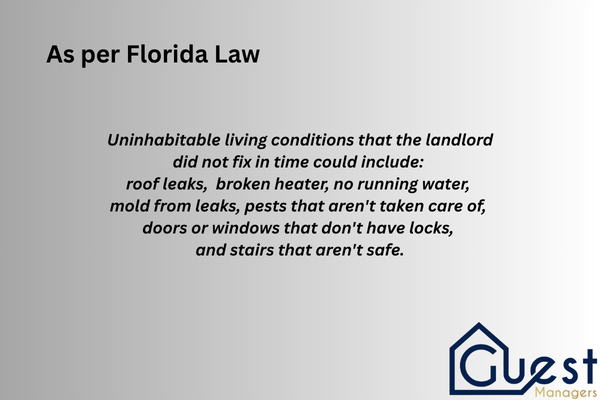
Uninhabitable living conditions also include mold from leaks, pests that aren’t taken care of, doors or windows that don’t have locks, and stairs that aren’t safe.
Tenants must write to the landlord at least seven days before rent is due to let them know about major repairs that need to be made. Sending this notice by certified mail gives you proof for court if you need it. Tenants must first pay their rent on time. After that, they can put money aside for future rent until repairs are made.
If the problems aren’t bad enough under the law, courts might still let the tenant leave and make them pay the costs. That’s why it’s important to have strong proof like photos and written notices when breaking a lease in Florida for health or safety reasons.
What happens to a lease if the landlord harasses you or violates your privacy?
Some living conditions may not be good, but harassment from the landlord or repeated violations of privacy can also make it impossible to stay in an apartment. According to Florida law, landlords must tell tenants at least 24 hours before they can enter the rented space (Fla.Stat. 83.53, 2025).

In Florida, you can legally break a lease if your landlord comes in without warning many times, turns off your utilities to force you out, or keeps bothering you.
Tenants can end their lease early without penalty if their privacy is repeatedly or severely violated, such as by surprise visits all the time. Landlords can’t change locks or turn off the power and water as a way to get someone to leave. Self-help evictions are also against the law.
Tenants should write down and keep proof of every incident to help them prove their case in Small Claims Court for illegal eviction. This protects renters’ rights when they break their lease early because their landlords are having these big problems.
What Happens to the Lease When a Tenant Passes Away?
Florida law and most lease agreements say what happens if a tenant dies and the landlord wants to end the lease early. The landlord should get a written notice from the tenant’s estate or representative.
The landlord can take back the property after giving proper notice.
You usually have to pay rent until the keys are returned and the law is followed. The Florida Statutes, Section 83.49(3)(f), say what to do with the security deposit. The landlord has 30 days from the day they get the unit to make a claim on this deposit.
In these cases, early lease termination often ends financial responsibility once all state rules are followed and the property is given back, so it’s important for both sides to follow the rules closely.
How Can a Mutual Agreement End a Lease Early?
In writing, both sides can agree to end a lease early. The tenant and landlord must both sign this document, which is called a “early lease termination agreement.” It should say when the tenant has to move out, what fees they will have to pay if they leave early, and how much rent they will have to pay before they move out.
As part of this deal, landlords may ask for an early termination fee or part of the rent that is still due. The contract usually also says what will happen to the security deposit.
In some cases, both sides might agree to find a new tenant to save money. If things get complicated or if something unusual happens during Florida early lease termination meetings, it’s a good idea to get legal advice.
This way, both sides can stay out of trouble with the law in the future when they break a lease in Florida.
When Is a Lease Agreement Unenforceable or Void?
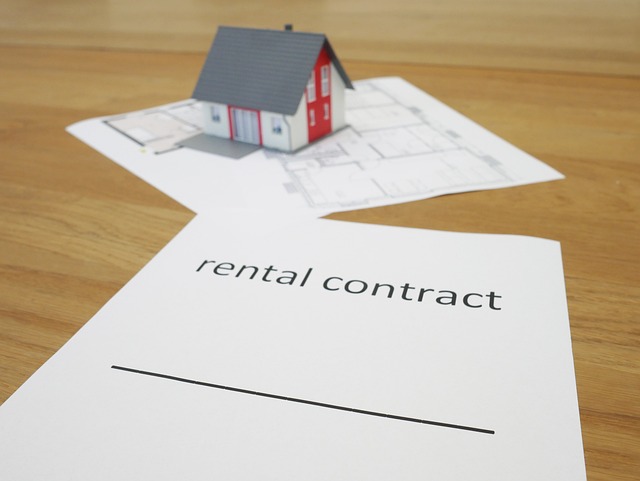
Certain leases in Florida can become void or unenforceable if they break important laws, even if both parties agree to them. If a rental lease has terms that are against the law or go against public policy, for example, a court may say it is not valid.
This means that the landlord can’t make the tenant follow those rules.
It is also against the law to discriminate when renting. Landlords in Hillsborough County and all of Florida cannot refuse to rent to someone because of their race, color, national origin, religion, sex, sexual orientation, disability status, or family structure.
State law says that lease agreements can’t include illegal rent increases or allow self-help evictions, like changing locks without going to court first. These sections are not valid and will not hold up in court if any part of a lease breaks Florida’s housing or health codes or ignores tenants’ rights under early lease termination laws.
You can rent a place orally, but it’s better to write it down in case there are problems later with breaking the lease.
What Are Early Termination Clauses in Lease Agreements?
Early termination clauses in lease agreements spell out how a tenant or landlord can end the lease early. If you break your rental lease, these rules often tell you exactly what to do, like send a written notice and pay certain fees.
Some Florida leases say “liquidated damages,” which means you have to pay a set amount of money, like one or two months’ rent, to leave before the lease ends.
A lot of the time, these clauses also say when you should give notice, which is usually 30 or 60 days ahead of time. Some leases let tenants break them early for reasons like moving for a new job. Your agreement must clearly say that you will lose your security deposit automatically.
Before you sign, make sure you understand these early lease termination details, because breaking a lease can have serious consequences if the terms are legal in Florida.
What Are the Notice Requirements for Ending a Lease Early?
In Florida, tenants have to follow certain rules when they tell their landlord they want to end a lease early. Most of the time, this means giving written notice. Renters should read their rental agreement and know the laws in their state, like the Florida Residential Landlord and Tenant Act., because each lease may have its own rules.
What is the right way to give written notice of early termination?
In Florida, you must follow the law and your rental agreement when you give proper written notice to end your lease early. It should be clear in the letter that you want to end your lease early, give a date for moving out, and explain why you are breaking the lease.
At the top, write your full name, address, and the date. You also need to sign it.
You should either hand-deliver this notice or send it by certified mail so you can prove that your landlord got it. Before your next rent is due, make sure they get a notice. Most leases say you have to give them 30 or 60 days’ notice.
If both sides agree to end the rental early, put that agreement in writing and have everyone sign it. If you ever have questions about Florida’s laws on breaking a lease or the penalties for doing so, keep a copy of any notices or agreements as proof.
When Should You Give Notice to End Early?
Tenants should write a letter to their landlord as soon as they decide to break their lease. Florida law says that you have to give notice before the next rent is due. For example, tenants in weekly rentals must give at least 7 days’ notice. For monthly rentals, they must give 15 days’ notice. For quarterly rentals, they must give 30 days’ notice. And for yearly rentals, they must give 60 days’ notice.
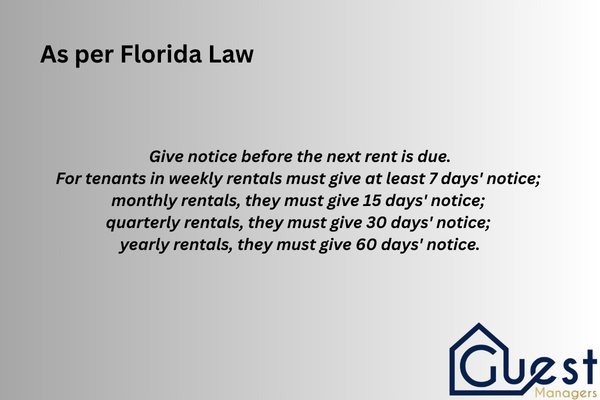
Add five more days if you send the notice by mail.
If you don’t give proper notice, you may have to pay more rent or early termination fees. You may need to let someone know right away about urgent problems like health risks or harassment from your landlord. If you need to end your lease early in Florida, it’s often easier to get a lower penalty if you talk to your landlord quickly and clearly.
Next, what do tenants have to do when they break a lease.
What do tenants have to do when they break a lease?
Tenants have to do certain things, like follow the terms of the lease and pay any fees for ending the lease early. They should also look at the rental agreement to find out how much it will cost, and when they contact property managers, they should use written notice forms or tenant portals.
Do you have to pay early termination fees?
If your lease in Florida clearly says so, you may have to pay early termination fees. These charges are also known as liquidated damages. Landlords can charge them, but only if the amount is fair and is written down in your rental agreement.
Landlords can’t just make up a fee or raise it later.
These fees are different from unpaid rent or costs for damage to the unit. If you pay the agreed-upon amount, you may not have to pay any more rent under that lease. You can try to talk to the landlord and ask them to lower or even get rid of this fee, especially if you help them find a new tenant.
Always ask for a receipt for any fees you pay to break your lease early, including these fees.
Must Tenants Pay Rent Until a New Tenant Is Found?
If someone breaks their rental lease early, Florida law does not require landlords to find a new tenant. Many landlords keep charging rent until the end of the lease or until they find a new tenant to fill the unit, whichever comes first.
Renters should carefully read their lease agreements to see if they include these details.
If you move out and don’t pay your rent, the owner can use the security deposit to cover what you owe. If the amount owed is less than $8,000, they sometimes take it to small claims court.
People who rent who want to take on less financial risk often look for someone to take over their lease and tell the property manager about it. Next, how do Florida landlords find new tenants when you break your lease?
Landlord’s Duty to Reduce Damages in Florida
If a tenant leaves early, Florida law says that the property owner should try to rent the house again as soon as possible. This rule can change how much tenants owe, so both sides should know their rights and responsibilities before making big choices.
How Do Landlords Find Replacement Tenants?
When a tenant breaks their lease early, landlords use normal methods to find a new one. They put up signs, post ads online, or call local rental agencies. Property managers can also help check out people who want to rent the empty apartment or house.
The landlord’s normal requirements, such as a credit check and proof of income, must be met by all new tenants.
If you break your lease early in Florida, your lease may say you have to help find someone new. Still, landlords get to choose who moves in next, and they can turn down anyone who doesn’t meet their requirements.
The new tenant must agree to the same lease terms as the old one. There can be no changes unless both parties sign a new agreement. This can lower how much rent you owe after breaking your lease early in Florida if you find a good match quickly.
At Guest Managers, we do the heavy lifting of finding/screening new tenants to make it trouble-free for landlords.
What happens to security deposits when a lease ends early?

The security deposit doesn’t go away after an early lease termination in Florida. Section 83.49(3)(f) of the Florida Statutes says that the landlord must either return it within 15 days or send a written notice of claim within 30 days.
The notice should say why you are keeping part of the deposit. Common reasons are unpaid rent or damage to the unit.
The tenant has 15 days from the time they get this claim to say they don’t agree with it. If the landlord doesn’t give proper notice in the first 30 days, they lose the right to keep the deposit. If tenants need to, they can sue for their money back in Small Claims Court. In Florida, claims involving deposits due after breaking a lease can only be up to $8,000.
The rules make sure that both renters and property owners know what to do and when to do it, even if the lease ends early.
What Are the Consequences of Illegally Breaking a Lease?
If you break a lease without permission, your landlord could report you to credit agencies or take you to court. It’s important to know Florida tenant laws because courts, collection agencies, and your rental history record could all get involved.
What Financial Penalties Can Tenants Face?

If a tenant breaks a lease in Florida, they may have to pay the rest of the rent. Some leases have fees for ending early, so tenants should expect to pay extra, which is usually between one and two months’ rent.
Tenants may also lose their security deposit if they don’t pay their rent or damage the property.
Landlords can also go to small claims court, where they can ask for up to $8,000 in damages. If tenants stay after the lease ends, courts may make them pay double rent.
Tenants might also have to pay for the landlord’s court costs and lawyer fees. Sometimes, lease agreements add extra costs, like administrative fines. If all of these fees apply, the penalty for breaking a lease can be very high.
What happens to your credit score if you break a lease?
If you break a lease in Florida without following the law, your landlord may tell credit bureaus like Experian or Equifax about unpaid rent or damage. This bad mark can hurt your credit score and make it harder to find a new apartment.
If you don’t pay your bills on time, collection agencies may also come after you. Your credit report will also show court decisions about debts that haven’t been paid.
Paying early termination fees or any other agreed-upon costs on time can help keep your score from going down even more. Some landlords hire tenant screening companies that check both credit reports and rental history before renting to new tenants.
A broken lease can stay on your record for a long time and hurt your chances of getting a rental in the future.
Can Landlords Sue You for Breaking a Lease?
In Florida, a landlord can sue you if you break your lease. In County Court, they can file a claim for unpaid rent, damages, or extra fees. The case goes to small claims court if the total amount owed is $8,000 or less.
The landlord must send you a letter telling you how much you owe before they can sue you.
You have five days to respond to an eviction suit after you get the court papers. Weekends and holidays don’t count. If you don’t respond, the judge may issue a default judgment against you and give the landlord a Writ of Possession so they can get the rental unit back.
They could also keep your security deposit if you don’t pay your bills. Under Florida’s laws about breaking a lease, tenants can countersue to get their deposit back if they need to.
What rights do tenants in Florida have to sublet?
People who rent in Florida often wonder if they can let someone else take over their space or sublet it. The lease will say what the rules are, but tenants may have choices, sometimes with the property owner’s written permission.
What Are the Conditions for Subletting?
In Florida, you usually need the landlord’s written permission to sublet a unit. The tenant must follow the rules in the lease, which may include getting permission before finding a subtenant.
Like any new renter, subtenants have to pass all the screening tests, such as credit checks and background checks.

The terms of the sublease should be the same as those of the original lease. Some leases say how long you can rent out your place. In some cases, like public or subsidized housing, subletting is not allowed at all.
The landlord or tenant who holds the lease gets the rent payments directly. If a subtenant breaks any rules, both they and the main tenant could be kicked out of their apartment or rental home.
Everyone should sign and keep copies of every agreement they make about breaking a lease or starting a new one, including any early termination rights that are required by law.
Do you need the landlord’s permission to sublet?
In Florida, most rental agreements say you need the landlord’s permission to sublet. You have to write a letter to the landlord and wait for their permission before letting someone else move in. Read the lease carefully because it may have extra rules or fees just for subletting.
Some leases will say that you can’t sublet at all.
Your landlord doesn’t automatically approve your proposed subtenant; they can even turn them down. Florida law says that if you don’t get permission, you could be evicted. There are no exceptions.
If you want to break your lease in Florida or end a lease agreement, you should act quickly because it can take days or weeks to get approval. Always get your landlord’s permission in writing. This protects both of you and is required by law in Florida when breaking a rental lease.
How can tenants lower their financial responsibility when they break a lease?
Tenants can save money by making a written agreement with their landlord. Getting help from a real estate agent or property manager might help you find someone to take over the rental faster.
How to Negotiate with the Landlord to Reduce Costs
When you want to end a lease early in Florida, being honest and open will help you get better results. First, get in touch with the landlord by email or phone. If you can afford it, offer to pay an early termination fee or suggest paying part of the rent.
You could also offer to find a qualified new tenant for the landlord so they don’t lose money while the unit is empty.
Ask the landlord if they will lower the penalties or drop some of the costs since you are willing to work together. If you left the rental clean and undamaged, ask for your security deposit back.

For safety, write down every agreement, no matter how small, and have both parties sign it. If things get complicated or stressful, a lawyer may be able to help keep talks fair and clear. This method might lower the cost of breaking a lease in Florida without penalty while still protecting your rights and credit score.
How to Find a Good Replacement Tenant
Check out all potential tenants to make sure they meet the landlord’s rental standards. Get references and recent pay stubs, then give them to your landlord. You can help by putting the apartment on reliable sites like Zillow or Apartments.com and showing it to potential renters if they ask.
Make sure that any candidate is ready to move in right away.
Arrange for your landlord to meet with the chosen renter so that they can approve the change before it happens. The new tenant must follow all of the rules in the current lease. Be clear about how you will handle security deposits. Some landlords like to move them, while others like to give them back after you move out.
To make sure your lease transfer goes smoothly and follows Florida law on ending a lease early and breaking a rental lease without penalty, get your landlord’s written permission.
What Are Common Misconceptions About Breaking a Lease?
A lot of people think that if you buy a house in Florida, you can break your rental lease without any problems. This is not true. Some renters think they always lose their security deposit if they move out early. This isn’t true; you only lose it if your agreement says so or if there are damages.
Some people think that just giving oral notice is enough to end a lease. To end a lease legally in Florida, you have to give written notice.
People often think that landlords have to find a new tenant right away after you leave, but Florida law doesn’t require this. Many tenants also have trouble with subletting because it depends on what their lease says and usually needs the landlord’s permission.
Some tenants think that fines are always set in stone when they break a lease, but they can be lowered through negotiation. It may seem like a good idea to stop paying rent when things are bad, but state law says you can only do this in very limited situations, like when a home is uninhabitable.
Another mistake is thinking that landlords can lock someone out or turn off their utilities to get them to leave. In Florida, these “self-help” actions are always against the law.
Frequently Asked Questions About Lease Termination in Florida
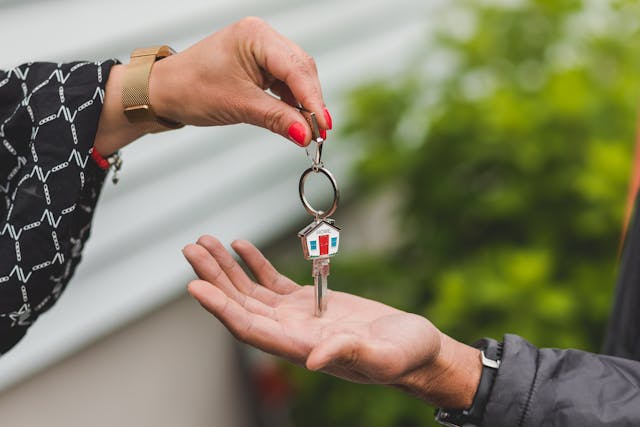
Do you want to know how to break a rental agreement, how much notice you need to give, or how much it costs to end your lease in Florida? – read on for quick answers and tips based on real cases, clear laws, and trusted advice.
Can Landlords Legally Terminate a Lease Early?
In Florida, landlords can legally end a lease early, but only for certain reasons. If you don’t pay your rent, you’ll get a three-day notice to pay or leave. Florida Statute 83.56(2)(a) and (3) (2025) says that if tenants keep breaking the rules, landlords can give them a 7-day unconditional quit notice.
If there are serious problems that can’t be fixed, like illegal activity or damage to the property, the landlord can give a 7-day termination notice right away.
Every step needs to have the right records. In public housing, you can be evicted for breaking serious rules or continuing to break them if you can show “good cause.” If renters meet the requirements, they will get at least 30 days’ notice before they have to move during foreclosure cases.
Landlords must follow the legal notice steps every time, even if they end the lease early in Florida.
Does breaking a lease hurt my credit?
In Florida, breaking a lease can hurt your credit. Property managers may send your unpaid rent or damages to a collection agency if you owe them. Credit bureaus like Experian and TransUnion often get reports about this.
Your report will also show court judgments for unpaid rent, which can last for years.
But not every case of ending a lease early will hurt your score. If you pay all the agreed-upon fees or make a deal with the owner, they might not report it. Even so, having a mark on your record from breaking a lease can make it harder to rent in the future.
Most landlords look at your FICO score and your rental history before agreeing to any new rental lease break penalty agreements with you.
How Much Does It Cost to End a Lease in Florida?

A bad credit score is just one thing that worries renters. They also want to know how much it costs to break a lease in Florida. The costs depend on your rental agreement and why you want to leave. You might have to pay that set amount if your lease has a clause for an early termination fee.
This can mean paying one or two months’ rent as a fine.
If your landlord can’t find a new renter, you might have to pay rent that you haven’t paid yet. If you don’t pay your rent or damage the property, you could lose some or all of your security deposit. Landlords often charge extra for things like putting up ads to rent the place again.
In Florida, small claims court can handle cases up to $8,000. If you disagree about these fees, you may have to go to small claims court. Every case is different, so always read your lease before making plans to break it in Florida.
When Should You Get Legal Help for Problems Ending a Lease?
If your landlord won’t fix health or safety issues, tries to bother you, or doesn’t respect your right to privacy, you need legal help. If you are being evicted in Florida for breaking a lease, can’t get your security deposit back, or need to defend yourself against claims of damage, an attorney can help.
Tenants in Hillsborough, Pasco, Pinellas, Manatee, and Sarasota counties can get help from groups like Bay Area Legal Services.
If you live in public housing or have problems with discrimination and retaliation, legal clinics can also help. Call the Hillsborough County Housing Stability Program for help.
You can find out more about how to break a lease legally in Florida without getting in trouble by reading Nolo’s “Every Tenant’s Legal Guide” and looking up the laws in your state.
Conclusion
Ending a lease early in Florida is possible, but you need to know your rights and follow the law. You can avoid big problems by clear notice, being honest with them, and knowing about active military service or unsafe housing.
For landlords, managing your property makes it worry-free, as we at Guest Managers do the client-facing in all aspects, from screening tenants to maintenance of property, handling of any concerns of tenants, rent collection, and everything else. Contact us today to make the most of your property rental in Orlando, Florida.
FAQs
1. Can you break a rental lease in Florida before the end date?
Yes, in Florida you can end a lease early. But if you break a lease, there are rules and possible punishments.
2. How can I terminate my lease early without penalty in Florida?
If you want to get out of a lease without paying a fine, look for legal reasons in your agreement, such as unsafe living conditions or violations by the landlord. The law also protects people who are on active duty in the military.
3. What are the penalties for breaking an apartment lease in Florida?
Your contract will tell you what the punishment is. If you break your lease early, you might have to pay one or two months’ rent as a fee or lose your security deposit.
4. How do I give notice to break my lease in Florida?
When you end your rental agreement early, you must give your landlord written notice. A common amount of notice is thirty days, but check your contract to see what it says.
5. Can I legally get out of my apartment lease if I buy a house in Florida?
You can’t end your apartment lease without paying fees just because you bought a house, unless your rental agreement clearly says you can.
6. Is there any way to back out of a signed rental contract within 24 hours in Florida?
Florida law doesn’t give you the right to cancel after signing unless there are very good reasons, like fraud. Always read the terms carefully before signing a new rental agreement.
